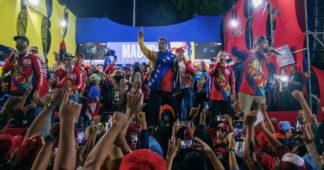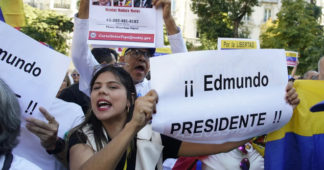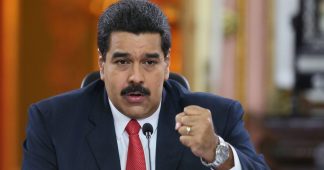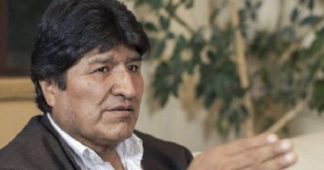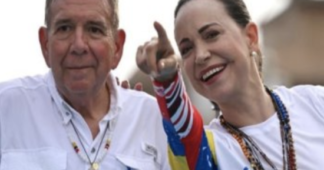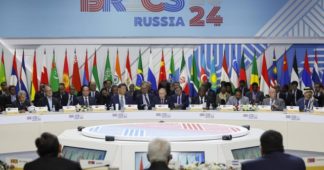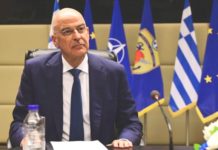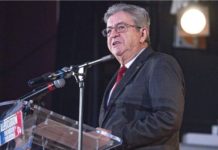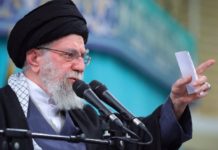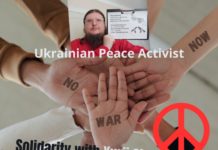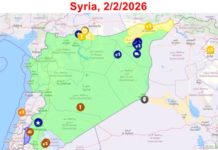ByVictor Cohen
July 27, 2025
Maduro is NOT the President of Venezuela’: US State Secretary Marco Rubio

U.S. Secretary of State Marco Rubio has declared today that Nicolas Maduro “is NOT the President of Venezuela.” In a post on X.com, Secretary Rubio launched a scathing attack against the contested president of Venezuela, signaling a new hardening of the Trump administration’s position on Venezuela.
Rubio says ‘Maduro is NOT the President of Venezuela’
“Maduro is NOT the President of Venezuela and his regime is NOT the legitimate government,” reads today’s statement of U.S. Secretary of State Marco Rubio.
The head of America’s foreign policy also reiterated accusations against the Maduro regime, stating that “Maduro is the head of the Cartel de Los Soles, a narco-terror organization which has taken possession of a country,” recalling that “he is under indictment for pushing drugs into the United States.”
Maduro is NOT the President of Venezuela and his regime is NOT the legitimate government. Maduro is the head of the Cartel de Los Soles, a narco-terror organization which has taken possession of a country. And he is under indictment for pushing drugs into the United States.
— Secretary Marco Rubio (@SecRubio) July 27, 2025
Back in January, then President-elect Donald Trump had recognized Edmundo Gonzalez as the president of Venezuela.
“Venezuelan democracy activist Maria Corina Machado and President-elect Gonzalez are peacefully expressing the voices and the WILL of the Venezuelan people, with hundreds of thousands of people demonstrating against the regime,” he stated in a TruthSocial post.
A few weeks later, Secretary Rubio also reiterated the White House’s position, calling Edmundo Gonzalez the “rightful president” of Venezuela.
For the record, Edmundo Gonzalez was the Venezuelan opposition’s candidate in the July 2024 presidential election, following the ban imposed by Venezuelan authorities on opposition leader Maria Corina Machado.
According to the Venezuelan opposition and the U.S., Gonzalez won the election by a wide margin. Based on independent tracking of more than 80% of voting records, the opposition claims it secured 67% of the vote compared to Maduro’s 30%.
Machado reacted to Rubio’s statement — also on X.com — saying that “Venezuela’s freedom will strike the most critical historical blow against organized crime, drug trafficking, and terrorism in our continent.” She also vowed that Venezuela, should the opposition come into power, would become the U.S.’s “greatest ally for regional stability, democracy, and prosperity in the Americas!”
Trump, Maduro and the ‘Cartel de Los Soles’
The Trump administration is now reviving rhetoric it had already employed during its first term (2017–2021), stating that the Chavist regime, led by Maduro and top military generals, is deeply involved in drug trafficking.
According to the White House, Maduro and top regime officials are heading a secret drug cartel named “Cartel de Los Soles,” which organizes the shipping of tons of cocaine each year.
As such, Maduro is officially wanted by the U.S. State Department under the Narcotics Rewards Program, with a $25 million bounty on his head. According to his profile, Maduro is wanted for drug trafficking and cooperation with the FARC, a Colombian guerrilla group dissolved in 2016, though several dissident factions remain.
Head of Venezuela’s military Vladimir Padrino and Interior Minister Diosdado Cabello are also wanted, with bounties of $15 million and $25 million respectively, for drug trafficking and, in Cabello’s case, charges similar to those against Maduro.
As of July 2025, U.S. sanctions against Venezuela target its government, economy, and key individuals through a series of executive orders and Treasury Department actions. These include sweeping asset freezes and transaction bans involving the Venezuelan government and its state oil company PDVSA, prohibitions on dealing in Venezuelan debt, gold, and state-issued digital currencies, and the blocking of over 150 senior officials, including Nicolas Maduro. Humanitarian exceptions remain limited and tightly regulated. Since April 2025, the U.S. has also imposed 25% tariffs on third countries trading Venezuelan oil, revoking Chevron’s license to operate in Venezuela.
We remind our readers that publication of articles on our site does not mean that we agree with what is written. Our policy is to publish anything which we consider of interest, so as to assist our readers in forming their opinions. Sometimes we even publish articles with which we totally disagree, since we believe it is important for our readers to be informed on as wide a spectrum of views as possible.
